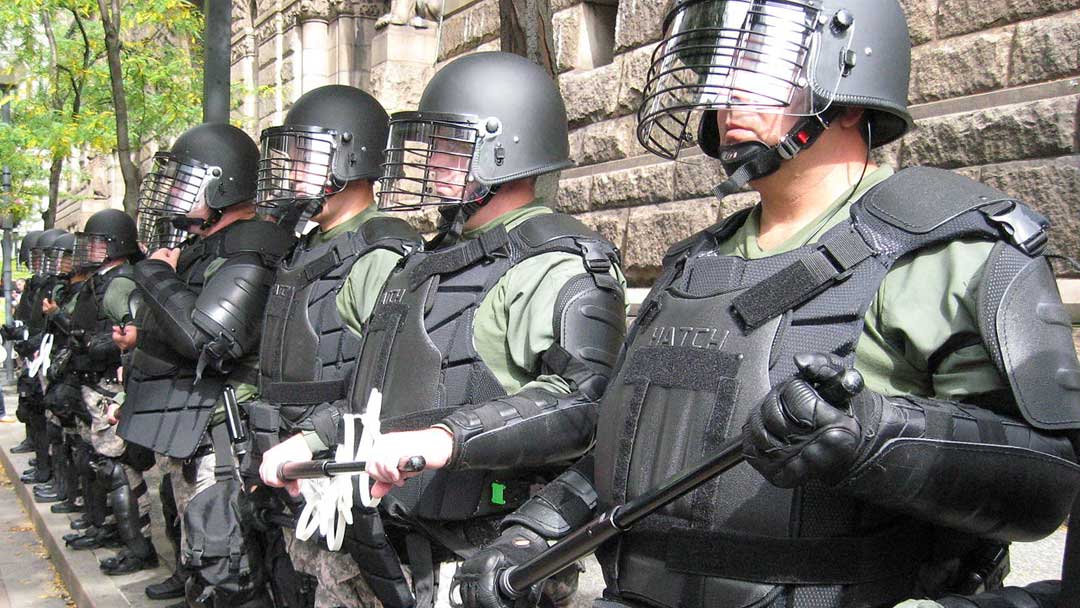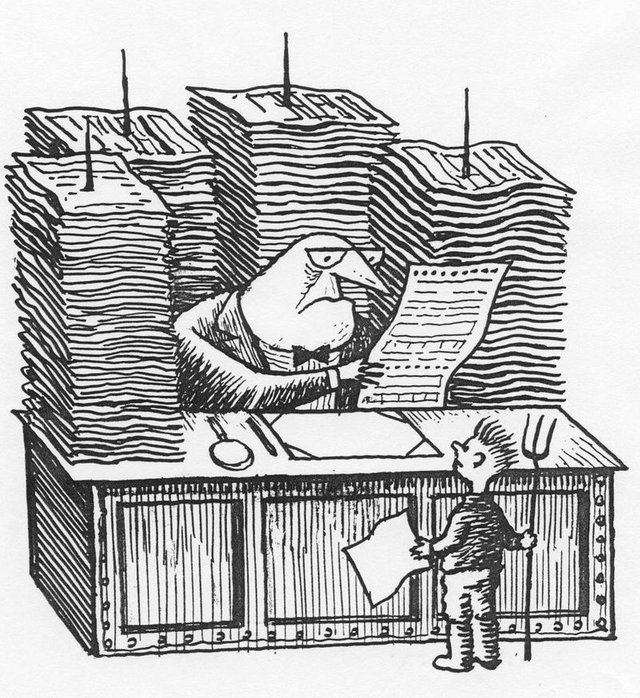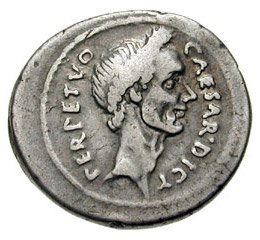The four bases of political power
In his textbook Sociology, Professor Jonathan H. Turner distinguishes between four different "bases of power" that are basic elements of all polities:
1. The coercive base of power

The first base of power is the coercive one. Political leaders always seek to coerce others to do what the leaders want. Direct physical force is often unnecessary because the threat of force is often sufficient to get others to conform to the leaders' wishes.
Coercion also has its costs, however. As pointed out by Turner:
Coercion as a base of power can be very effective in the short run, but if leaders rely too much on coercion, resentments build and eventually people will begin to fight back. Moreover, once coercion is the primary base of power it costs a great deal to keep it going: people must be constantly monitored, a standing force loyal to leaders
must be supported, and administrative structures must be elaborated to keep tabs on who is doing what and to imprison or kill those who fail to conform.
2. The administrative base of power

The administrative base of power is used when leaders set up structures for carrying out their orders and for monitoring conformity. Such structures greatly enhances the leaders' power:
[O]nce a large-scale administrative structure is in place, the ability to rule a society is dramatically expanded. Large projects can be undertaken; taxes can be collected; police and military can be organized; agencies for specific tasks can be created; and in general, the ability to do more things is enhanced. Not only does an administrative structure become a useful tool for leaders to implement their decisions, but once in place, the structure itself also becomes a source of power.
3. The material incentive base of power

Leaders can get people to do what leaders want by manipulating material incentives. If orders are followed, material rewards are offered. If orders are not followed, material resources can be taken away. This is the material incentive base of power:
All leaders ultimately begin to tax their population, taking their surplus resources and, then, selectively giving them back to induce conformity. Of course, a great deal is skimmed off the top to support elite privilege, but leaders will almost always try to bestow or withhold material benefits to control members of a population.
4. The symbolic base of power

The perceived legitimacy of political leaders is enhanced by symbols and ideologies that bolster the leaders' asserted right to rule over others.
When the symbolic base of power is used, leaders make appeals to cultural traditions, religious beliefs, history, laws, constitutions, emblems like flags, and virtually any symbol that has the power to move people.
For leaders' hold on power to endure, then they must cultivate symbolic power and be seen as having the legitimate right to lead.
Further examples include national anthems, images of state leaders on money, statues and monuments that commemorate important people and events in a nation's history, uniforms of police and military, special rituals conducted when a new leader accedes to power like a coronation of a monarch (often by religious authority figures) or the public swearing-in ceremony of a new president.
All governments rely on all four bases of power, Turner writes, but in different configurations:
Totalitarianism, for example, relies heavily on the coercive and administrative bases of power. A more democratic polity will still have coercive force and a large administrative structure, but it will rely much more on legitimating symbols (as enshrined in a constitution and laws) and on manipulation of incentives (tax breaks and subsidies)
to get people and organizations to voluntarily "choose" to do what the government wants.
The increasing reliance on symbols and material incentives and decreasing reliance on naked force can perhaps help explain the psychological tendency to want to believe that government is not based on force. Repressing the fact that all governments are ultimately based on coercion is a lot easier when that force is hidden behind ideologies, manipulated incentive structures, and administrative bureaucracies.
Congratulations @morality2! You have completed some achievement on Steemit and have been rewarded with new badge(s) :
Click on any badge to view your own Board of Honor on SteemitBoard.
For more information about SteemitBoard, click here
If you no longer want to receive notifications, reply to this comment with the word
STOPCongratulations @morality2! You received a personal award!
You can view your badges on your Steem Board and compare to others on the Steem Ranking
Do not miss the last post from @steemitboard:
Vote for @Steemitboard as a witness to get one more award and increased upvotes!